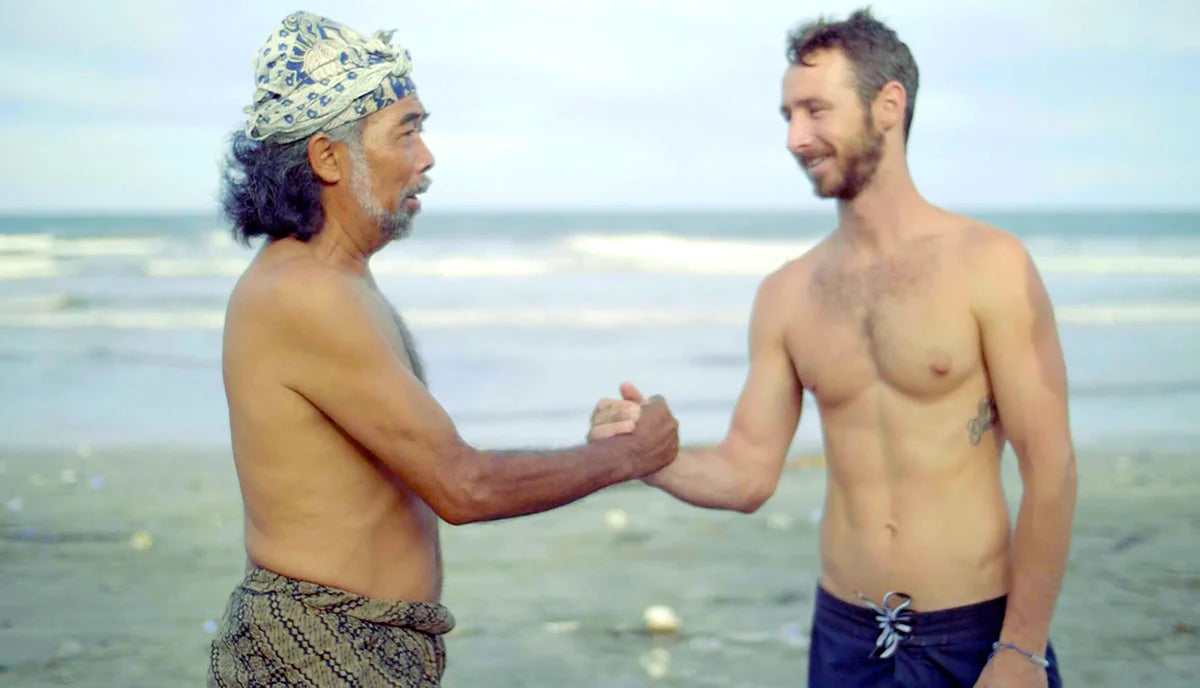We’re on a mission to end the ocean plastic crisis
Our Origin Story

Founded by two surfers
Alex Schulze and Andrew Cooper were inspired to start this business after taking a surf trip to Bali, Indonesia, in 2015. While they had grown up in Florida and made their living from the ocean, Bali is where they truly began to understand the severity of the ocean plastic crisis and its impact not just on marine life, but on the coastal communities that, like them, relied on the health of the ocean to survive.

Inspired by local fishermen
After speaking with local fishermen about the impact plastic pollution was having on their livelihoods, Alex and Andrew realized they could build a business that paid full-time captains and crews to recover plastic and other man-made trash from their local environment instead of catching fish.

4ocean is born
On the flight home, Alex and Andrew came up with ideas for products that would fund their cleanups. They finally settled on a bracelet because it was a wearable symbol of their mission that would spark conversations about plastic pollution and it would act as a physical reminder to people to make ocean-minded choices like refusing single-use plastics.

Millions of pounds of trash later
Now, 4ocean manages one of the world’s largest ongoing ocean cleanup operations and employs hundreds of professional, full-time captains and crews who are cleaning the world’s oceans, rivers, and coastlines every single day.
A global crisis requires a global solution

Florida
Our Florida crew specializes in cleaning the Intracoastal Waterway, which includes countless beaches, inlets, canals, estuaries, and other coastal areas along the east coast as well as open waters of the Atlantic Ocean. We also specialize in cleaning vulnerable mangrove forests which are protected under the Mangrove Act in the State of Florida.
Osborne Reef Tire Cleanup
Osborne Reef was a coral restoration project that tried to build the world’s longest artificial reef using millions of old passenger car tires. Unfortunately, the project failed and loose tires have been migrating across the seafloor since the 1970s. These tires weigh anywhere from 40 to 50 pounds and cause significant damage to vulnerable and endangered coral habitats all along the coast.
Our dive crew is working below the ocean’s surface to help recover these tires and protect our coral reefs. Our designated cleanup area spans 34 acres of seabed just north of the original drop site where hundreds of thousands of loose tires have migrated. Click the button below to learn more about this historic underwater cleanup and how you can support it!
Indonesia
With four locations spread across two islands, 4ocean Indonesia has significant access to the oceans, rivers, and coastlines of Bali and Java, including West Bali National Park.
These crews specialize in the installation and maintenance of our river boom systems, which trap plastic that would otherwise flow downriver and into the ocean.
We’ve already deployed two river boom systems—one in the Ijo Gading River, which is considered the island’s largest contributor to ocean plastic pollution, and another in the Samblong River, which is a small but highly polluted river in Bali’s Jembrana Regency.
Guatemala
Preventing plastic from entering the ocean is the crux of our strategy in Guatemala. Our main operational base is located in the harbor city of Puerto Barrios, which also supports two satellite locations in the small coastal villages of El Quetzalito and San Francisco del Mar.
While our teams do recover plastic from the open ocean, our main focus is preventing plastic from entering the ocean through the Rio Motagua, a heavily polluted river that stretches 300 miles from the remote central highlands of Guatemala to the Caribbean Sea. We also concentrate our efforts on high-impact areas along the coast, specifically in the Gulf of Honduras, where massive amounts of trash accumulates.
